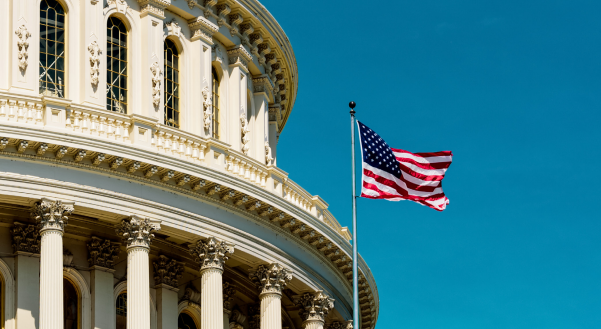Replacing Your EHR? 30% of Practices are doing the same!
A new study from Black Book Research states that physicians are looking for more advanced Electronic Health Records. The study predicts that 30% of...
3 min read
AVS Medical : Apr 19, 2023 12:00:00 AM

The No Surprises Act will go into effect on Jan. 1, 2022, requiring healthcare providers and practices to comply with new regulations that help protect patients from unexpected medical bills.
Designed to help prevent consumers from getting blindsided by the cost of unanticipated or emergency healthcare costs, the No Surprises Act outlines new processes that improve the accuracy of provider directories, allow better transparency about the cost of care, and offer other financial protections for patients.
Oftentimes, patients are shocked when they get their medical bills after receiving:
These patients discover the cost of their care was far more expensive than they expected—and they are responsible for paying for it.
Signed into federal law on Dec. 27, 2020, the No Surprises Act helps protect patients against these types of surprise medical bills. Stipulations from this new law will impact physicians, facilities, non-physician health professionals, and health plans, and these requirements become enforceable at the beginning of 2022.
To improve the accuracy of provider directory information, providers must submit regular updates to health plans to help insurers maintain up-to-date, accurate directories of their in-network doctors. Health plans will be required to verify provider contract status regularly, update this information at least once every 90 days, and establish a procedure for removing providers unable to verify.
In the event a patient relies on inaccurate provider directory information, the health plan cannot impose a cost-sharing amount greater than in-network rates. If a provider submits a bill to a patient greater than the in-network cost sharing and the patient pays the bill, then the provider must refund the cost difference with interest.
To determine provider payments for scheduled out-of-network services, out-of-network providers must provide a “good faith estimate” of all the billing and service codes for the care the patient is expected to receive to the health plan. These estimates must be submitted at least three days before providing the scheduled services and obtaining the patient consent.
Providers must post a brief explanation of state regulations related to balance billing on their website and also include contact information for the proper enforcement agency with which the patient can file a complaint.
The No Surprises Act protects patients in several ways.
First, the Act ensures that patients who receive emergency care from an out-of-network provider or facility are only responsible for cost-sharing amounts that would be their responsibility if services had been provided in-network. This cost-sharing protection also applies to patients who receive emergency and nonemergency care at an in-network facility from an out-of-network physician, unless certain notice and consent requirements are met. Providers are prohibited from holding patients responsible for higher amounts.
The Act also helps patients access information about the costs of the care they will receive, such as in-network and out-of-network deductibles, out-of-pocket limitations, and an estimated cost for the price of out-of-network services.
Additionally, the law helps to ensure continuity of care for patients. For example, if a provider contract is terminated without cause, then a patient who was receiving services from the provider can continue to receive services for either 90 days or the date when services are no longer needed.
Starting Jan. 1, 2022, providers and practices must:
The No Surprises Act offers important protections for patients as well as increased transparency on the cost of healthcare. But ever-changing regulations can add to a practice’s administrative burden.
For more information on the No Surprises Act, please see the following references from the AMA:
Are you interested in a Cloud Based EMR Software that will help you meet these new requirements?
Learn More about NextGen Office

A new study from Black Book Research states that physicians are looking for more advanced Electronic Health Records. The study predicts that 30% of...

Whether you use Medisoft, Lytec or Practice Partner, every practice’s Revenue Cycle Management is the same. It starts when a patient sets an...

The 21st Century Cures Act, known more simply as the Cures Act, became law in 2016. This bipartisan legislation sought to increase choice and access...